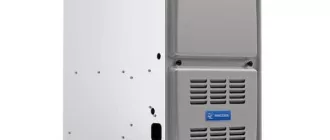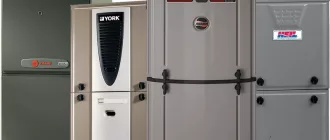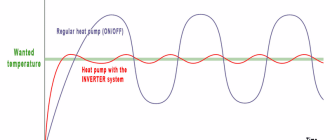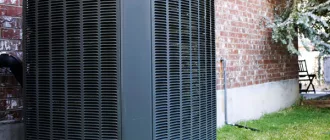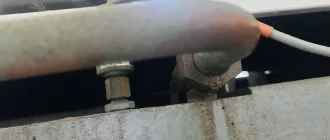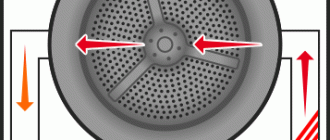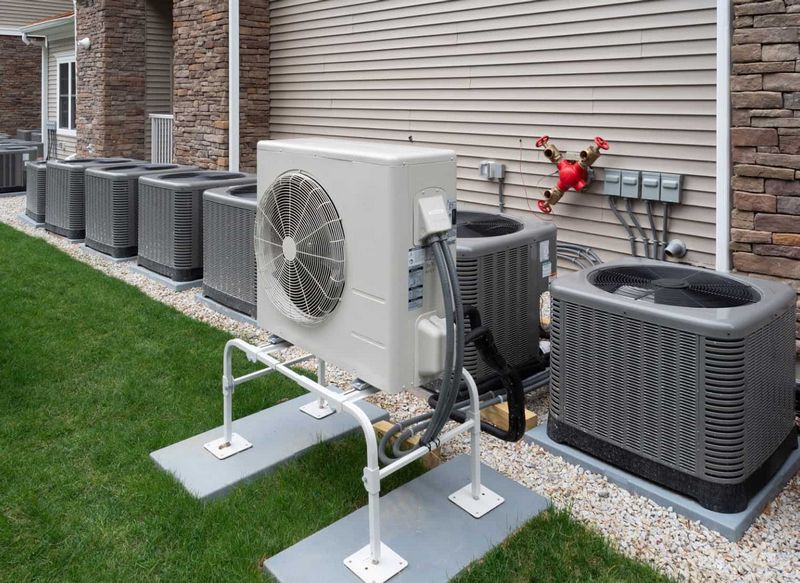
Is Your Home HVAC System Wasting Energy?
If you are concerned about energy consumption in your home, it’s important to evaluate the efficiency of your HVAC system. Your home’s HVAC system plays a crucial role in regulating temperature and maintaining indoor air quality, but an inefficient system can waste a significant amount of energy. By recognizing the signs of energy waste, you can take steps to improve the efficiency of your HVAC system and reduce your energy costs.
One common sign that your HVAC system is wasting energy is inconsistent temperature control throughout your home. If you notice that some rooms are consistently warmer or cooler than others, it may be a sign that your system is not functioning properly. Inefficient airflow or leaky ductwork can cause hot or cold spots in your home, forcing your HVAC system to work harder to maintain a consistent temperature.
Another sign of energy waste is an increase in your energy bills. If you have noticed a significant rise in your monthly energy costs, it could be a sign that your HVAC system is not operating efficiently. Older systems or systems that have not been properly maintained may require more energy to heat or cool your home, resulting in higher energy consumption and increased costs.
Excessive noise from your HVAC unit can also indicate energy waste. Unusual or loud noises, such as grinding or banging sounds, could be a sign that your system is not running smoothly. These noises are often a result of worn-out components or a malfunctioning motor, which can cause your system to use more energy than necessary.
Furthermore, a system that frequently turns on and off, known as short-cycling, is a clear sign of energy waste. Short-cycling can occur when your HVAC system is too large for your home or when it is not properly calibrated. This constant cycling wears down the components of your system and requires more energy to operate efficiently.
In conclusion, recognizing these signs of energy waste in your home’s HVAC system is crucial for improving its efficiency. By addressing these issues, you can reduce your energy consumption and lower your monthly bills. Regular maintenance, proper sizing, and professional inspection can help ensure that your HVAC system operates at its optimal efficiency, saving energy and money in the long run.
High Energy Bills
When it comes to your home HVAC system, one of the biggest expenses you’ll have to deal with is the energy it consumes. If you’re noticing an increase in your monthly energy bills, it could be a sign that your HVAC system is wasting energy. Here are a few reasons why your high energy bills might be related to your home HVAC system:
| 1. | Your HVAC system is outdated or inefficient. |
| 2. | Your home is poorly insulated. |
| 3. | Your HVAC system is in need of maintenance or repairs. |
| 4. | You have a leak in your ductwork. |
| 5. | You’re not taking advantage of programmable thermostats or energy-saving settings. |
If you suspect that your home HVAC system is wasting energy and causing your high energy bills, it’s important to address the issue as soon as possible. By investing in an efficient HVAC system, improving your home’s insulation, scheduling regular maintenance, fixing any ductwork leaks, and optimizing your thermostat settings, you can ensure that your system is running as efficiently as possible and reduce your energy bills.
Frequent HVAC Repairs
Having a properly functioning HVAC system is essential for maintaining a comfortable home and minimizing energy waste. However, you may encounter various issues that require frequent repairs to keep your system running efficiently. Here are some common HVAC problems that homeowners often face:
- Thermostat Issues: A malfunctioning thermostat can lead to inaccurate temperature control and unnecessary energy usage. If you notice temperature inconsistencies or unusual behavior from your thermostat, it may need to be repaired or replaced.
- Leaky Ducts: Leaky air ducts can cause significant energy loss as conditioned air escapes before reaching its intended destination. If you notice rooms that are difficult to cool or heat, or if you frequently find yourself adjusting the thermostat to maintain comfort, you may have leaky ductwork.
- Faulty Capacitors: Capacitors in your HVAC system help start the motors and keep them running efficiently. When these components malfunction, your system may experience issues such as frequent on/off cycling, weakened airflow, or failure to start. Repairing or replacing faulty capacitors can help restore proper system function.
- Dirty Filters: Dirty or clogged air filters can restrict airflow and put unnecessary strain on your HVAC system’s components. This can lead to decreased efficiency, higher energy consumption, and more frequent breakdowns. Regularly replacing or cleaning air filters is an important maintenance task to prevent these issues.
- Refrigerant Leaks: Low refrigerant levels can cause your HVAC system to operate less efficiently and struggle to cool or heat your home properly. If you notice a decrease in cooling or heating performance, it could be due to refrigerant leaks. HVAC professionals can identify and repair these leaks to restore system efficiency.
Dealing with frequent HVAC repairs can be frustrating and costly. However, addressing these issues promptly and efficiently can help improve the performance and energy efficiency of your home’s HVAC system, saving you money in the long run.
Uneven Temperature Distribution
One of the signs that your home HVAC system is wasting energy is when you notice inconsistent temperature distribution throughout your home. This means that certain rooms or areas in your house are significantly colder or hotter than others.
This uneven temperature distribution can be caused by a variety of factors, including poor insulation, improper ductwork design, or air leaks. When your HVAC system is not properly distributing the conditioned air, it has to work harder to compensate for the inconsistencies, resulting in wasted energy.
To address this issue, it is important to identify the root cause of the temperature imbalance. It could be due to air leaks in the ductwork, which can be fixed by sealing the ducts. Poor insulation in certain areas of your home might require additional insulation to prevent heat transfer. An HVAC professional can assess your system and recommend the right solutions.
Regular maintenance of your HVAC system is also crucial in ensuring optimal performance and even temperature distribution. This includes cleaning or replacing air filters, checking for air leaks, and inspecting ductwork for any damage or obstructions.
| Certain rooms are significantly colder or hotter than others | Seal ductwork, add insulation, check for air leaks |
| HVAC system working harder to compensate for temperature discrepancies | Regular maintenance, including filter cleaning and ductwork inspection |
By addressing the issue of uneven temperature distribution in your home, you can improve the energy efficiency of your HVAC system and create a more comfortable living environment. Don’t hesitate to consult with an HVAC professional for expert advice and assistance.
Noisy HVAC System
Is your HVAC system making excessive noise? In addition to being annoying, a noisy HVAC system can indicate that your system is wasting energy. Here are some common reasons why your HVAC system might be noisy:
- Loud air vents: If you hear loud whistling or rattling noises coming from your air vents, it could indicate a problem with the ductwork or a clogged air filter. This can cause your system to work harder than necessary, wasting energy.
- Noisy fan motor: A noisy fan motor could be a sign of a worn-out bearing or loose parts. This can cause your HVAC system to work less efficiently and consume more energy.
- Vibrating compressor: If you notice a vibrating sound coming from your outdoor unit, it could be a sign of an imbalanced compressor. This can lead to higher energy consumption and reduced system lifespan.
- Clanking or banging noises: Clanking or banging sounds can indicate a problem with the blower motor, such as a loose or damaged component. When your blower motor is not functioning properly, it can affect your system’s efficiency and waste energy.
- Excessive noise during startup or shutdown: If your HVAC system is making loud noises during startup or shutdown, it could be a sign of a faulty ignition or fuel supply. This can impact the energy efficiency of your system.
If you notice any of these signs, it is important to address them as soon as possible to prevent further energy wastage. Consider contacting a professional HVAC technician to diagnose and repair the issues with your noisy system. Doing so can improve the efficiency of your system and save you money on energy costs in the long run.
Poor Indoor Air Quality
Poor indoor air quality in your home can be a sign that your HVAC system is wasting energy. When the air quality in your home is low, it can lead to health issues for you and your family, as well as discomfort and decreased productivity.
One common cause of poor indoor air quality is dirty air filters. When air filters become clogged with dust and debris, they are less effective at trapping pollutants and allergens, allowing them to circulate throughout your home. This can lead to respiratory problems and allergies, as well as increased energy consumption as your HVAC system works harder to compensate for the clogged filters.
Another potential cause of poor indoor air quality is inadequate ventilation. When your home is not properly ventilated, pollutants and allergens can become trapped inside, leading to a buildup of unhealthy air. This can be especially problematic in homes with poor insulation, as it can be difficult for fresh air to enter and stale air to exit.
Additionally, a poorly maintained HVAC system can contribute to poor indoor air quality. If your system is not regularly cleaned and serviced, it may accumulate dust and mold, which can then be circulated throughout your home. This can exacerbate allergy symptoms and respiratory issues, and also decrease the efficiency of your HVAC system, leading to wasted energy.
To improve indoor air quality and reduce energy waste, it is important to regularly change your air filters and have your HVAC system inspected and maintained by a professional. Additionally, proper ventilation and insulation can help ensure that fresh air is circulating throughout your home and pollutants are being expelled.
By addressing and improving poor indoor air quality, you can not only enhance the comfort and health of your home, but also reduce energy waste and increase the efficiency of your HVAC system.
Tips to Improve HVAC Efficiency
1. Regular Maintenance: Ensure that your HVAC system receives regular maintenance. This includes cleaning or replacing air filters, checking and sealing ductwork, and inspecting the system for any signs of damage or leaks. Regular maintenance helps the system to operate efficiently and prevents energy waste.
2. Programmable Thermostat: Install a programmable thermostat to optimize energy usage. Set the thermostat to automatically adjust the temperature when you are away from home or asleep, reducing energy consumption during these times. This allows the HVAC system to operate more efficiently and saves energy.
3. Proper Insulation: Insulate your home properly to prevent energy loss. Well-insulated walls, ceilings, and windows help to keep the cool or warm air inside, reducing the workload on your HVAC system. This can significantly improve energy efficiency and reduce energy waste.
4. Seal Air Leaks: Identify and seal any air leaks in your home. Common areas for air leaks include windows, doors, and around electrical outlets. Sealing these leaks helps to prevent drafts and keeps the conditioned air inside, improving HVAC efficiency and reducing energy waste.
5. Upgrade to Energy-Efficient Equipment: Consider upgrading to energy-efficient HVAC equipment. Look for systems that have a high energy efficiency rating (SEER rating for air conditioners and AFUE rating for furnaces). Energy-efficient equipment uses less energy to heat or cool your home, resulting in lower energy bills and reduced energy waste.
Remember that improving HVAC efficiency not only saves energy but also reduces your carbon footprint and helps to protect the environment. By implementing these tips, you can make your home more energy-efficient and save on energy costs.
Schedule Regular HVAC Maintenance
Regular maintenance is key to ensuring that your home HVAC system is running efficiently and not wasting energy. By scheduling regular maintenance for your HVAC system, you can catch any potential issues before they become major problems and take steps to improve its efficiency.
During a maintenance visit, a professional HVAC technician will inspect and clean your system, check for any leaks or blockages, and make any necessary repairs or adjustments. This can include cleaning or replacing air filters, checking and repairing ductwork, and lubricating moving parts.
By keeping your HVAC system in good working order, you can ensure that it is running at peak efficiency and not wasting energy. This can not only save you money on your energy bills, but also help to reduce your carbon footprint and contribute to a more sustainable home.
It is recommended to schedule HVAC maintenance at least once a year, ideally before the start of the heating or cooling season. However, if you notice any signs of energy wastage or inefficiency in your HVAC system, such as uneven heating or cooling, strange noises, or an increased energy bill, it may be necessary to schedule maintenance more frequently.
Regular HVAC maintenance is an investment that can save you money in the long run by improving energy efficiency and preventing costly repairs. Don’t wait until your system breaks down or starts wasting energy – schedule regular maintenance for your home HVAC system today.
Ensure Proper Insulation
One of the main reasons why your home HVAC system may be wasting energy is due to inadequate insulation. Poor insulation can result in heat loss during the winter and heat gain during the summer, leading to your HVAC system working harder to maintain a comfortable temperature.
To ensure proper insulation, you can consider the following steps:
- Check for air leaks: Inspect your home for any gaps or cracks around windows, doors, and vents where air can escape. Use weatherstripping, caulking, or sealant to seal these leaks and prevent energy loss.
- Add insulation to the attic: The attic is one of the major areas where heat can escape from your home. Make sure to have sufficient insulation in the attic to prevent heat loss and reduce the workload on your HVAC system.
- Insulate walls and floors: Adding insulation to your walls and floors can help maintain a consistent temperature in your home and reduce energy waste. Consider using insulation materials such as fiberglass, cellulose, or foam to improve energy efficiency.
- Seal ducts: Leaky air ducts can significantly impact the efficiency of your HVAC system. Hire a professional to inspect and seal any leaks or loose connections in your ductwork to ensure that the conditioned air reaches its intended destination.
- Consider double-glazed windows: If you have single-pane windows, replacing them with double-glazed windows can improve insulation and reduce heat transfer. Double-glazed windows have two layers of glass with an insulating layer of air or gas in between, providing better thermal insulation.
By ensuring proper insulation in your home, you can minimize energy waste, reduce your HVAC system’s workload, and lower your energy bills.
Install a Programmable Thermostat
One of the major reasons why your home HVAC system may be wasting energy is due to manual temperature control. Traditional thermostats require you to manually adjust the temperature settings throughout the day, which can easily result in energy waste.
By installing a programmable thermostat, you can ensure that your HVAC system operates more efficiently and only uses energy when it is needed. With a programmable thermostat, you can set different temperature levels for different times of the day or week, allowing your HVAC system to automatically adjust the temperature based on your schedule.
For example, you can set the thermostat to lower the temperature while you’re away at work or asleep, and then have it increase the temperature before you come home or wake up. This way, you won’t be wasting energy heating or cooling your home when it’s not necessary.
A programmable thermostat also allows you to create a consistent temperature schedule for your home, ensuring that it stays comfortable without excessive energy usage. It can help you optimize your energy consumption and reduce your heating and cooling costs.
Overall, installing a programmable thermostat is a smart investment that can help you save energy and money, while also improving the efficiency of your home HVAC system.
Clean or Replace Air Filters Regularly
Regularly cleaning or replacing the air filters in your home HVAC system is crucial for energy efficiency. Air filters play a vital role in keeping the air clean and circulating properly throughout your home. Over time, these filters can become clogged with dust, dirt, and other particles, causing your HVAC system to work harder and consume more energy.
By regularly cleaning or replacing your air filters, you can improve the energy efficiency of your HVAC system. Clean filters allow air to flow more freely, reducing the strain on the system and minimizing energy waste. Additionally, clean air filters help to maintain indoor air quality, ensuring that the air you breathe is free from pollutants and allergens.
To clean or replace your air filters, start by checking the manufacturer’s instructions for your specific HVAC system. Some filters can be cleaned and reused, while others need to be replaced entirely. If your filters are reusable, remove them from the system and gently clean them with a vacuum or by rinsing them with water. Allow them to dry completely before reinstalling.
If your filters are disposable, simply remove the old filter and replace it with a new one. Make sure to buy the correct size and type of filter for your HVAC system. It’s also a good idea to set a reminder to check and clean or replace your filters every 1-3 months, depending on the manufacturer’s recommendations and the level of air pollution in your home.
By regularly cleaning or replacing your air filters, you can ensure that your HVAC system operates at its highest energy efficiency. This simple maintenance task can help you save money on your energy bills and prolong the lifespan of your HVAC system. Don’t let dirty air filters waste energy in your home; make it a priority to clean or replace them regularly.
Seal Air Leaks
One of the biggest contributors to a home HVAC system wasting energy is air leaks. When there are gaps or cracks in your home’s walls, windows, doors, or ductwork, air can escape or enter, causing your HVAC system to work harder and use more energy.
To save energy and improve HVAC efficiency, it’s important to seal these air leaks. Start by inspecting your home for any noticeable drafts or gaps around windows and doors. Use weatherstripping or caulk to seal these areas, preventing air from escaping or entering.
In addition to windows and doors, check for any cracks or gaps in your home’s walls and foundation. These can be sealed with foam insulation or expanding foam spray. Don’t forget to inspect your ductwork for leaks as well. These can be sealed with foil tape or mastic sealant.
Sealing air leaks not only improves HVAC efficiency and reduces energy waste, but it also helps to improve indoor air quality by preventing dust, pollen, and other outdoor pollutants from entering your home. By taking the time to seal air leaks, you can save money on your energy bills and create a more comfortable and healthy living environment.
Use Ceiling Fans
One way to improve HVAC energy efficiency is to use ceiling fans. Ceiling fans can help circulate air throughout your home, reducing the strain on your HVAC system and lowering energy usage.
By running your ceiling fans in conjunction with your HVAC system, you can create a more comfortable living environment without relying solely on your HVAC system. This can reduce the amount of energy your HVAC system uses and save you money on your energy bills.
When using ceiling fans, it’s important to remember a few key tips:
| 1. | Set your ceiling fans to rotate in a counterclockwise direction during the summer to create a cool breeze. |
| 2. | In the winter, reverse the direction of your ceiling fans to clockwise. This will create an updraft, pushing warm air down from the ceiling. |
| 3. | Make sure your ceiling fans are clean and well-maintained. Dust and dirt can reduce their efficiency and effectiveness. |
| 4. | Consider installing energy-efficient ceiling fans, which use less energy while still providing the same cooling and heating effects. |
Using ceiling fans in conjunction with your HVAC system is a simple and cost-effective way to improve energy efficiency and reduce the amount of energy wasted by your HVAC system.
Avoid Blocking Vents
One of the most common reasons for wasting energy in your home HVAC system is blocking vents. When vents are blocked or covered, the airflow is restricted, causing the system to work harder to cool or heat your home.
Blocked vents can occur for various reasons, such as furniture or drapes being placed in front of them or accidentally closing the vents. It’s important to ensure that all vents in your home are unobstructed and open to promote proper airflow.
To avoid blocking vents, make sure that furniture or other objects are positioned away from them. Additionally, check that no vents are accidentally closed, especially in rooms that are less frequently used.
Proper airflow is crucial for the efficient operation of your HVAC system. By avoiding blocked vents, you can maximize the energy efficiency of your system and prevent wasting unnecessary energy.
Use Curtains or Blinds to Control Sunlight
One common way that homes waste energy is through the inefficient use of natural sunlight. When sunlight enters your home, it can increase the temperature inside and cause your HVAC system to work harder to cool it down. This results in wasted energy and higher energy bills.
To prevent this, consider using curtains or blinds to control the amount of sunlight that enters your home. By closing the curtains or lowering the blinds during the hottest parts of the day, you can block out the sun and keep your home cooler. This will reduce the strain on your HVAC system and help to lower your energy consumption.
If you still want to enjoy natural sunlight, you can use sheer curtains or adjustable blinds that allow you to control the amount of light that enters. These options will still block out the heat from the sun while allowing some natural light to brighten your home.
By actively managing the sunlight that enters your home, you can create a more comfortable living environment and reduce the amount of wasted energy from your HVAC system.
Consider Energy-Efficient HVAC Replacements
If your home HVAC system is wasting energy, it may be time to consider energy-efficient replacements. Upgrading your HVAC system to a more efficient model can not only save you money on energy bills, but it can also have a positive impact on the environment.
Here are some signs that indicate it may be time for an energy-efficient HVAC replacement:
- Old age: If your HVAC system is more than 10-15 years old, it is likely not as efficient as newer models on the market.
- Frequent breakdowns: If your HVAC system is constantly breaking down and requiring repairs, it may be a sign that it is outdated and in need of replacement.
- Poor performance: If your HVAC system is not effectively cooling or heating your home, or if there are noticeable temperature differences between rooms, it may be a sign that it is not functioning at its full potential.
- Noise and vibration: Excessive noise and vibration from your HVAC system could indicate that it is not running efficiently and may need to be replaced.
- Increasing energy bills: If you notice a significant increase in your energy bills without any changes in your usage habits, it may be a sign that your HVAC system is wasting energy and needs to be replaced.
Investing in an energy-efficient HVAC system can provide numerous benefits, including cost savings, increased comfort, and reduced environmental impact. Be sure to consult with a professional HVAC technician to determine the best replacement options for your home.
Use Energy-Efficient Appliances and Lighting
When it comes to saving energy in your home, one of the most effective ways is to invest in energy-efficient appliances and lighting. This can significantly reduce the amount of energy your HVAC system needs to operate, resulting in lower energy bills and a more eco-friendly home.
Energy-efficient appliances, such as refrigerators, washing machines, and dishwashers, are designed to use less energy without compromising on performance. Look for appliances with the ENERGY STAR label, which indicates that they meet strict energy efficiency guidelines set by the U.S. Environmental Protection Agency.
In addition to energy-efficient appliances, replacing traditional incandescent light bulbs with light-emitting diode (LED) bulbs can also help you save energy. LED bulbs are more energy-efficient and last longer than incandescent bulbs, reducing the need for frequent bulb replacements.
Another way to utilize energy-efficient lighting is by using natural light whenever possible. Make sure your home has plenty of windows and consider installing skylights or solar tubes to bring in more natural light. This will not only reduce your reliance on artificial lighting but also provide a comfortable and inviting atmosphere in your home.
By using energy-efficient appliances and lighting, you can significantly reduce the energy consumption of your HVAC system and make your home more energy-efficient overall. This will not only help you save money on your energy bills but also contribute to a greener and more sustainable environment.
Q&A:
How can I tell if my HVAC system is wasting energy?
There are several signs that indicate your HVAC system is wasting energy. If you notice that your energy bills have increased significantly, your home is not cooling or heating properly, there are hot or cold spots in your home, or you hear strange noises coming from your HVAC system, these are all signs of energy waste.
What can cause my HVAC system to waste energy?
There are several factors that can cause your HVAC system to waste energy. Some common causes include dirty air filters, leaky ductwork, improper insulation, an outdated thermostat, or a malfunctioning compressor. It’s important to regularly maintain your HVAC system to ensure it is operating efficiently.
How can I improve the efficiency of my HVAC system?
There are several steps you can take to improve the efficiency of your HVAC system. First, you should regularly clean or replace your air filters. Additionally, you can seal any leaky ducts, improve the insulation in your home, upgrade to a programmable thermostat, and schedule regular maintenance for your HVAC system. These steps will help your system operate more efficiently and save energy.
Should I consider upgrading my HVAC system if it is wasting energy?
If your HVAC system is old and inefficient, it may be worth considering an upgrade. Newer HVAC systems are much more energy-efficient and can save you a significant amount of money on your energy bills. Additionally, they often come with advanced features such as programmable thermostats and zoning capabilities, which can further enhance energy efficiency.

